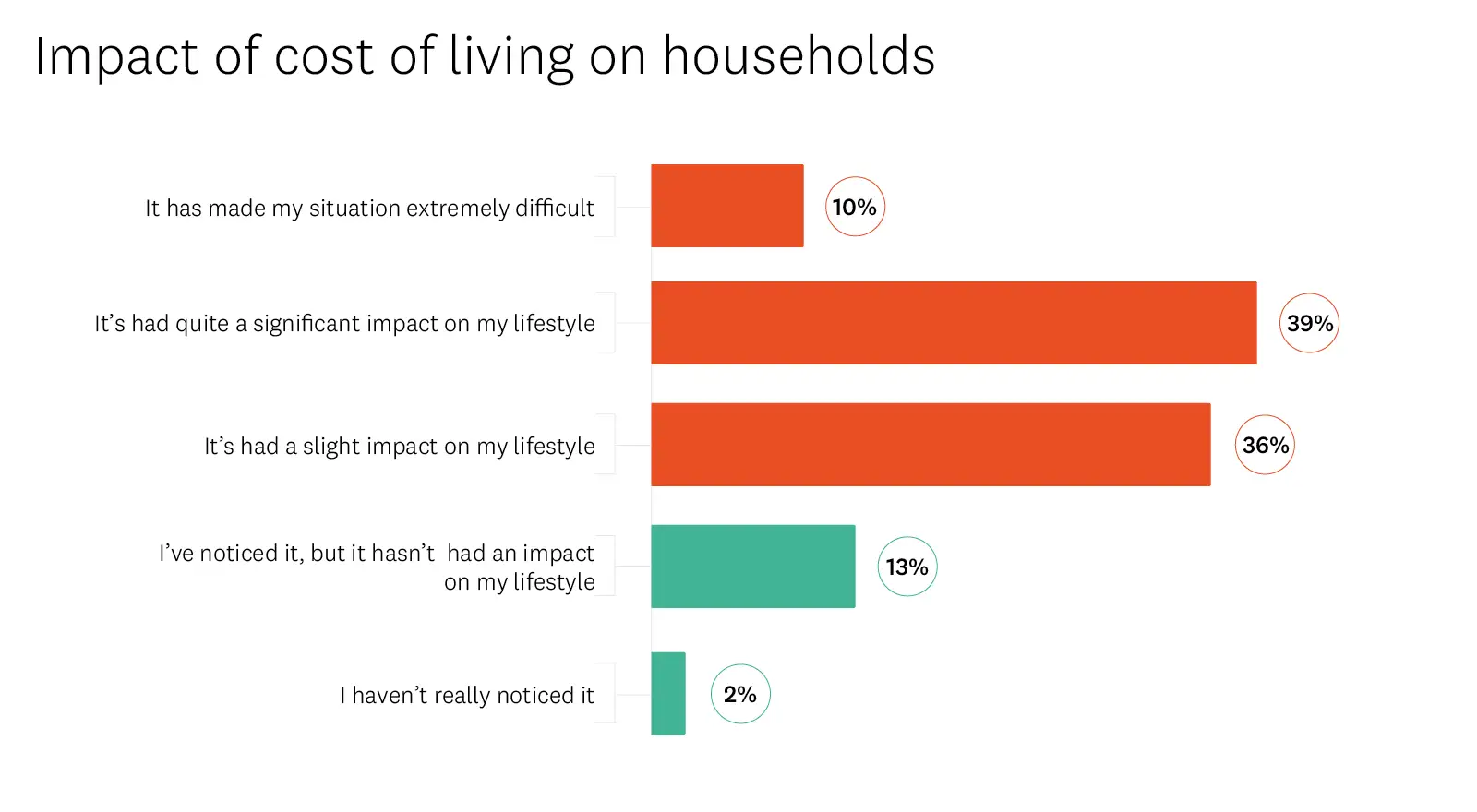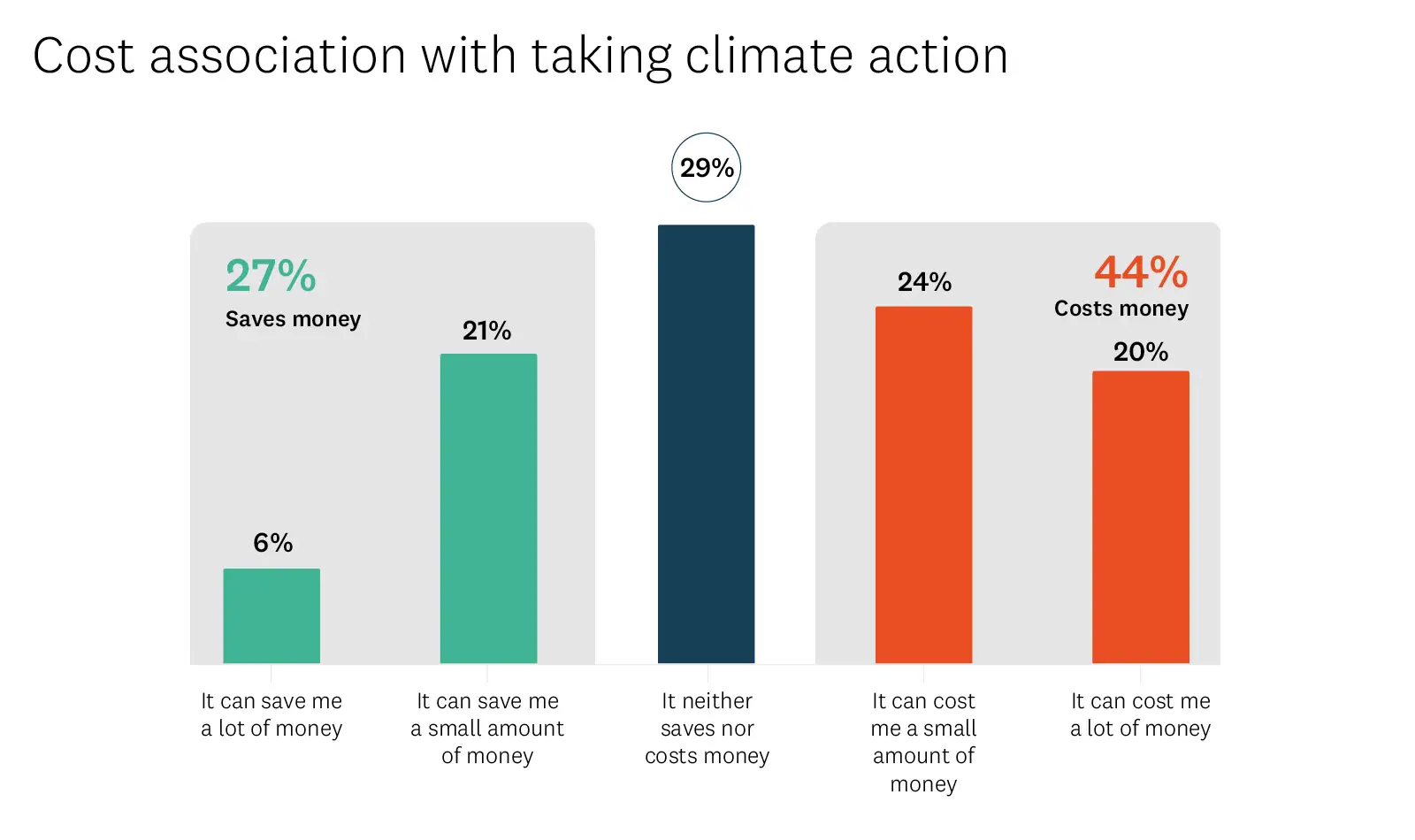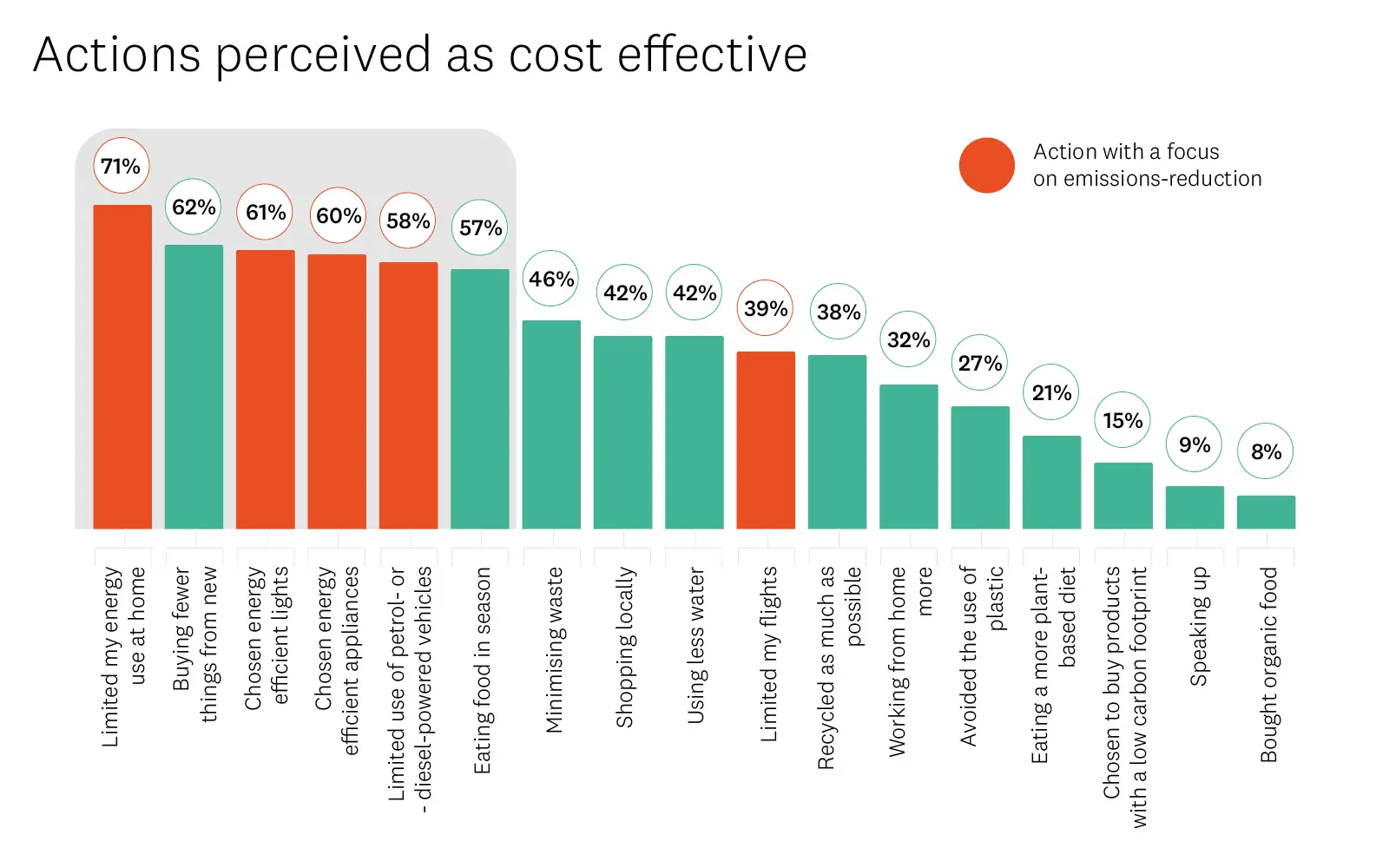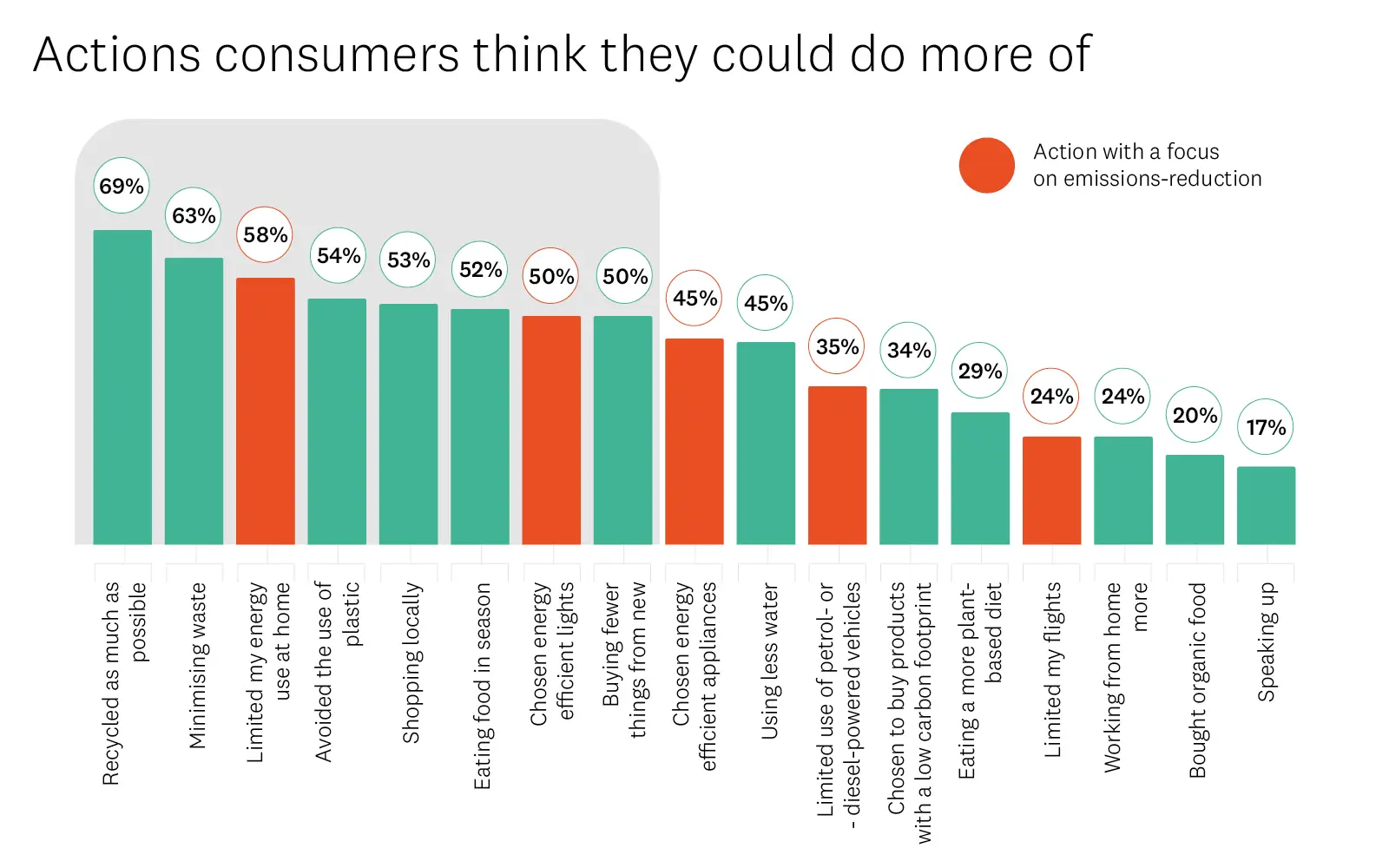Overview
Our market research programme monitors the mood of the nation relating to climate change, energy emissions and efficiency, and topics like electric vehicles. Every quarter, we survey 750 adult New Zealanders to track their beliefs, behaviours and attitudes to energy use and climate change. This survey canvassed New Zealanders from April – June 2023.
Findings
Most New Zealanders are feeling the impact of the cost of living, so it’s no surprise it’s been top-of-mind for people, sitting well ahead of environmental concerns when it comes to what’s important to New Zealanders right now.
However, more people are thinking about climate change – and the cost associated with taking climate friendly action.
New Zealanders said they are more likely to associate higher costs with taking action, despite many actions being cost-neutral and, often, cost saving.
Nearly all New Zealanders are feeling the impact of the cost of living
The cost-of-living increase is being felt by 85% of people to some degree. The impact has been significant for around half of the population.
Climate change is increasingly on New Zealanders' minds
More than a third of people are thinking about climate change more than they were a year ago, and this finding is universal across all ages, incomes and genders.
- 12% think about it less often
- 52% think about it the same amount
- 36% think about it more often
More people associate climate action with cost
There is a trend among both age and income when associating actions with money:
- As age increases there is a stronger perception that taking action comes with a financial cost (younger New Zealanders aged under 35 are the least likely to think this).
- Those with annual household incomes under $60k are least likely to see cost-saving benefits of taking action.
48% of people will only take climate-friendly action if it saves them money
Climate action can save costs
Despite the view the climate action costs money, there are several actions people view as cost saving, and most of these have high potential to reduce emissions, including limiting fossil-fuelled car use and limiting energy use at home.
However, most of these cost- and emissions-savings actions are not among those that New Zealanders say they could realistically do more often – just 35% of people say they could reduce their car use.
Read the full report
EECA will publish new reports each quarter to track how attitudes and actions are changing.
Download previous reports
Read more EECA insights
-
Public attitudes and action on energy and climate change: March 2023
Our research shows despite recent extreme weather events across New Zealand, we are not seeing movement across climate beliefs and actions.
- Market research
-
A deep dive into how businesses approach energy use and climate change
Join us for a webinar taking a deep dive into four years of insight into business belief and action on climate change.
-
Exploring how New Zealanders relate to energy use and climate change
A look at the impact culture, age, gender, regionality and income has on our attitudes and behaviours.
- Market research




